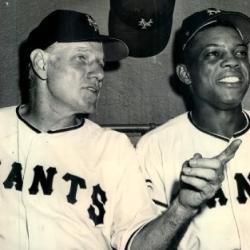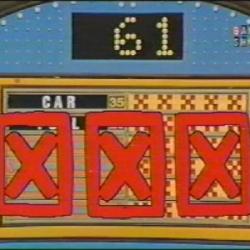IT at Gay Married Californian shares this clip of a recent speech by Panti Bliss — Dublin’s pre-eminent drag queen.
It’s about LGBT rights and Ireland and the Irish media, but it’s also a lot bigger and broader and deeper than that. (Pauses to consider what Panti would make of that string of adjectives, decides it’s better not to dwell on that.)
My point there is that this short speech by this larger-than-life lady has nothing to do with America or with the church or with the church in America. And yet it does. And so I think this speech is something that every pastor in every church in America ought to see. I think maybe it’s something that every pastor in every church in America needs to see.
Panti takes the stage after what appears to have been a somber play about impoverished coal miners in 1913 — because this is in Ireland, where if you’re ever going to step onto a stage the odds are that it will be soon after a somber play about impoverished coal miners in 1913. She then offers a charming, funny, heartfelt and sometimes heart-breaking speech about oppression and how it becomes internalized and about what it means to be a person like her living in a place like that.
Here’s the video:
She takes a particular image from a particular instance and shapes it into a motif of something universal.
Have you ever been standing at a pedestrian crossing when a car drives by and in it are a bunch of lads, and they lean out the window and they shout “Fag!” and throw a milk carton at you?
Now it doesn’t really hurt. It’s just a wet carton and anyway they’re right – I am a fag. So it doesn’t hurt, but it feels oppressive.
When it really does hurt, is afterwards. Afterwards I wonder and worry and obsess over what was it about me, what was it they saw in me? What was it that gave me away? And I hate myself for wondering that. It feels oppressive and the next time I’m at a pedestrian crossing I check myself to see what is it about me that “gives the gay away” and I check myself to make sure I’m not doing it this time.
She revisits and reworks that motif of “checking myself” at pedestrian crossings, in coffee shops, on the train, on the bus, when reading the newspaper or watching TV. And what she describes, I think, is something that applies far beyond just to LGBT people in Dublin. The oppression she describes is, I think, recognizable to anyone who’s ever experienced any form of oppression anywhere.
The other thing that struck me about this speech was her description of the way the very word “homophobia” has been taken away from her. In a precise parallel of the way that the word “racism” is used here in the U.S., Panti describes the fallout from her recent uppity attempt to employ the word accurately:
Three weeks ago I was on the television and I said that I believed that people who actively campaign for gay people to be treated less or differently are, in my gay opinion, homophobic. Some people, people who actively campaign for gay people to be treated less under the law took great exception at this characterisation and threatened legal action against me and RTÉ. RTÉ, in its wisdom, decided incredibly quickly to hand over a huge sum of money to make it go away. I haven’t been so lucky.
And for the last three weeks I have been lectured by heterosexual people about what homophobia is and who should be allowed identify it. Straight people — ministers, senators, lawyers, journalists — have lined up to tell me what homophobia is and what I am allowed to feel oppressed by. People who have never experienced homophobia in their lives, people who have never checked themselves at a pedestrian crossing, have told me that unless I am being thrown in prison or herded onto a cattle train, then it is not homophobia.
And that feels oppressive.
So now Irish gay people find ourselves in a ludicrous situation where not only are we not allowed to say publicly what we feel oppressed by, we are not even allowed to think it because our definition has been disallowed by our betters.
And for the last three weeks I have been denounced from the floor of parliament to newspaper columns to the seething morass of internet commentary for “hate speech” because I dared to use the word “homophobia.” And a jumped-up queer like me should know that the word “homophobia” is no longer available to gay people. Which is a spectacular and neat Orwellian trick because now it turns out that gay people are not the victims of homophobia — homophobes are the victims of homophobia.
That same spectacular and neat Orwellian trick can be seen every day of the week on cable news channels in America, where it is constantly suggested, hinted or stated outright that black Americans are not the victims of racism — white Americans made to feel guilty about racism are.
I’ve been copying from this transcript of the speech, but you really need to watch the whole performance and not just read the script. It’s only about 11 minutes long, but if you’re pressed for time, skip ahead to the conclusion — the bit that comes right after the bit quoted above — starting at around 9:05 in that video.












